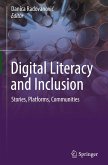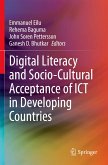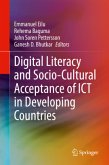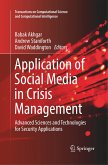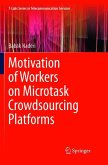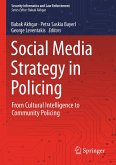Amid the opportunities and challenges we face at the dawn of the fifth industrial revolution, Digital Literacy and Inclusion presents a carefully curated selection of case studies, theories, research, and best practices based on digital literacy as a prerequisite for effective digital inclusion.
More than a dozen experts provide deep insights in stories, research reports, and geographical studies of digital literacy and inclusion models, all from a multi-disciplinary perspective that includes engineering, social sciences, and education. Digital Literacy and Inclusion also highlights a showcase of real-world digital literacy initiatives that have been adopted by communities of practice around the globe.
Contributors explore myriad aspects and modalities of digital literacy: digital skills related to creativity, urban data literacy, digital citizenship skills, digital literacy in education, connectivity literacy, online safety skills, problem-solving and critical-thinking digital skills, data literacy skills, mobile digital literacy, algorithmic digital skills, digital health skills, etc. They share the principles and techniques behind successful initiatives and examine the dynamics and structures that enable communities to achieve digital literacy efficiently and sustainably. Their practical solutions, propositions, and findings provide theoretically grounded and evidence-based facts that inform interventions intended to ensure that all citizens have and can enhance their digital literacy while meaningfully and responsibly participating in the digital economy and society.
The ideas and histories in this book will appeal to scholars and researchers in the social sciences, engineering, education, sustainable digital technologies, and transformation, and will also be of interest to practitioners in industry, policy, and government.
More than a dozen experts provide deep insights in stories, research reports, and geographical studies of digital literacy and inclusion models, all from a multi-disciplinary perspective that includes engineering, social sciences, and education. Digital Literacy and Inclusion also highlights a showcase of real-world digital literacy initiatives that have been adopted by communities of practice around the globe.
Contributors explore myriad aspects and modalities of digital literacy: digital skills related to creativity, urban data literacy, digital citizenship skills, digital literacy in education, connectivity literacy, online safety skills, problem-solving and critical-thinking digital skills, data literacy skills, mobile digital literacy, algorithmic digital skills, digital health skills, etc. They share the principles and techniques behind successful initiatives and examine the dynamics and structures that enable communities to achieve digital literacy efficiently and sustainably. Their practical solutions, propositions, and findings provide theoretically grounded and evidence-based facts that inform interventions intended to ensure that all citizens have and can enhance their digital literacy while meaningfully and responsibly participating in the digital economy and society.
The ideas and histories in this book will appeal to scholars and researchers in the social sciences, engineering, education, sustainable digital technologies, and transformation, and will also be of interest to practitioners in industry, policy, and government.


